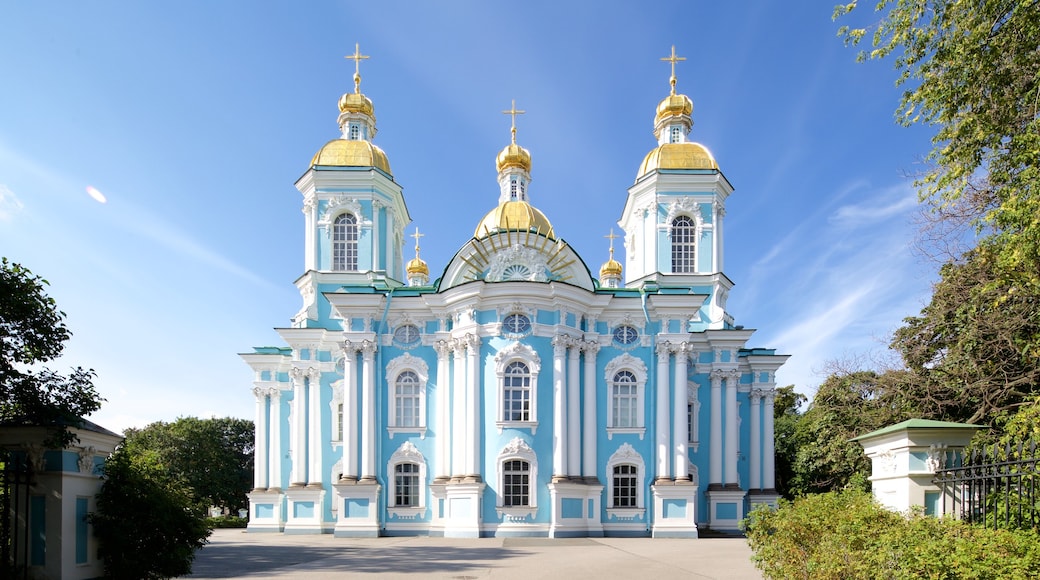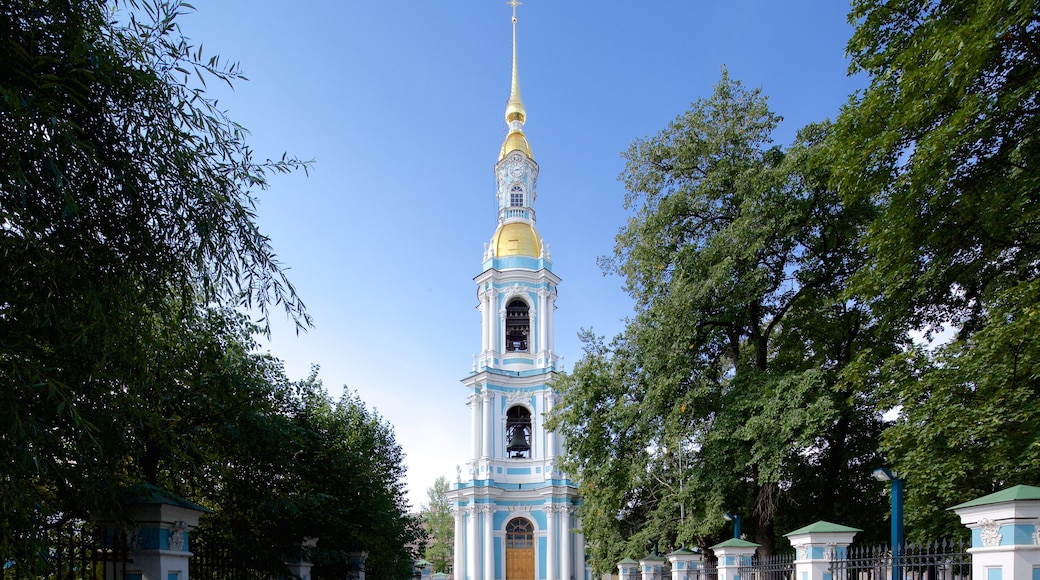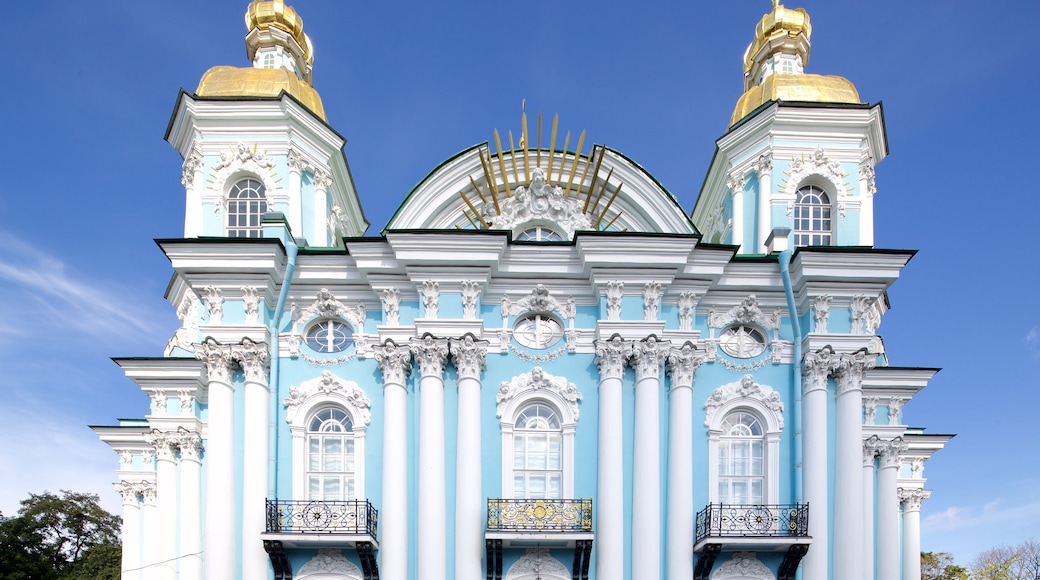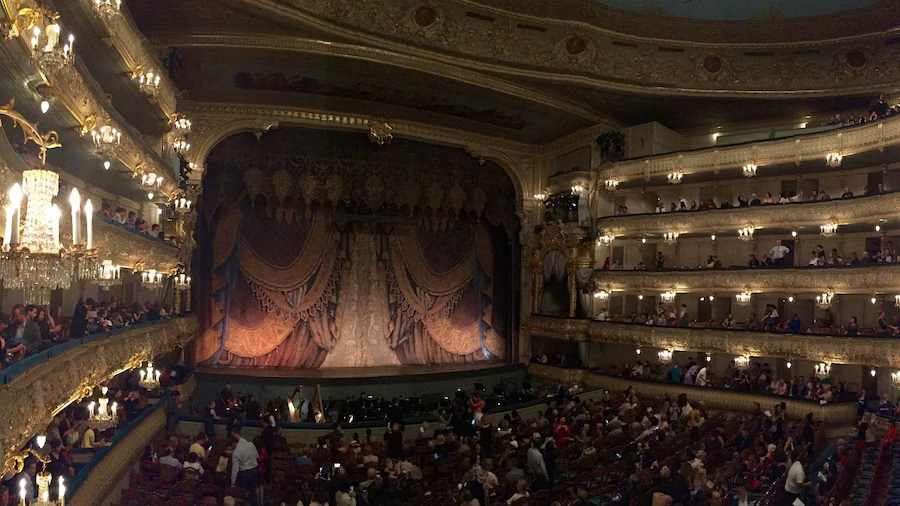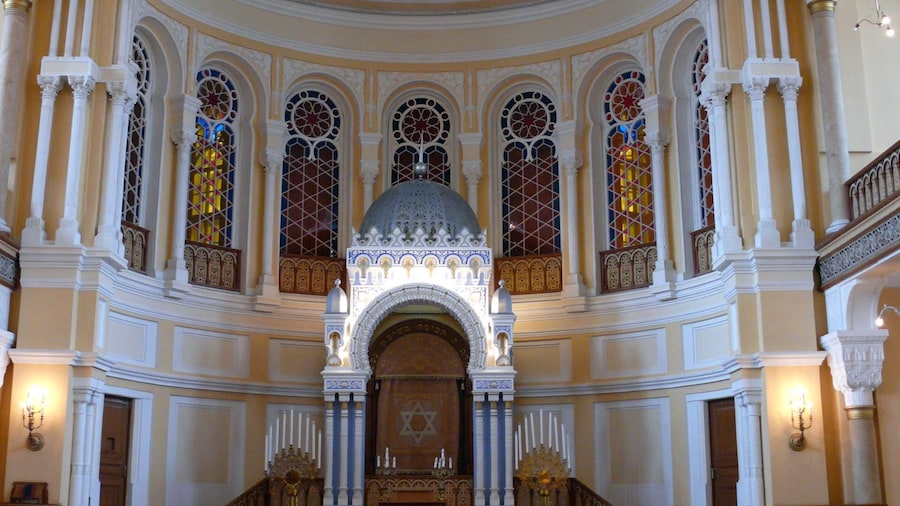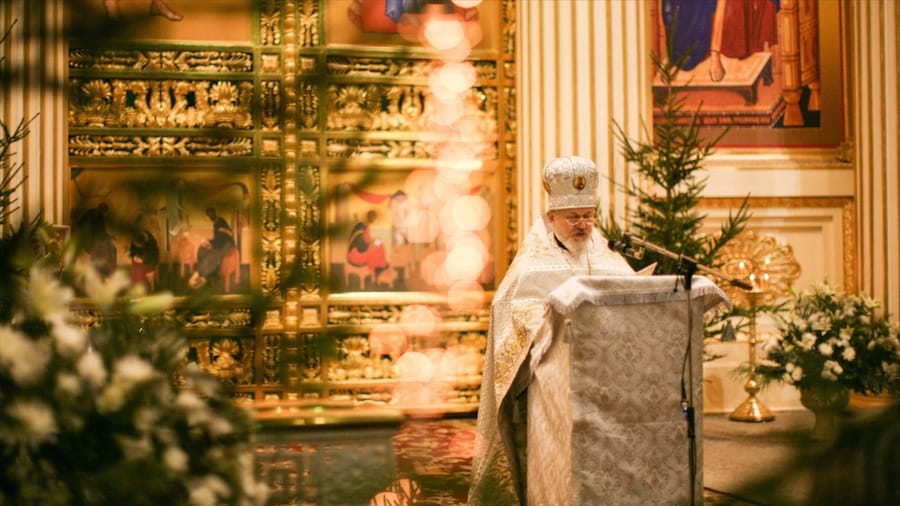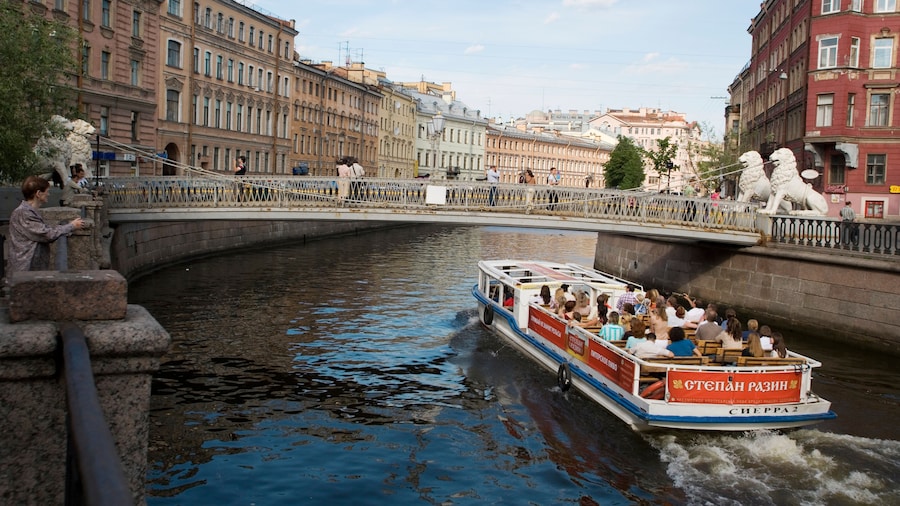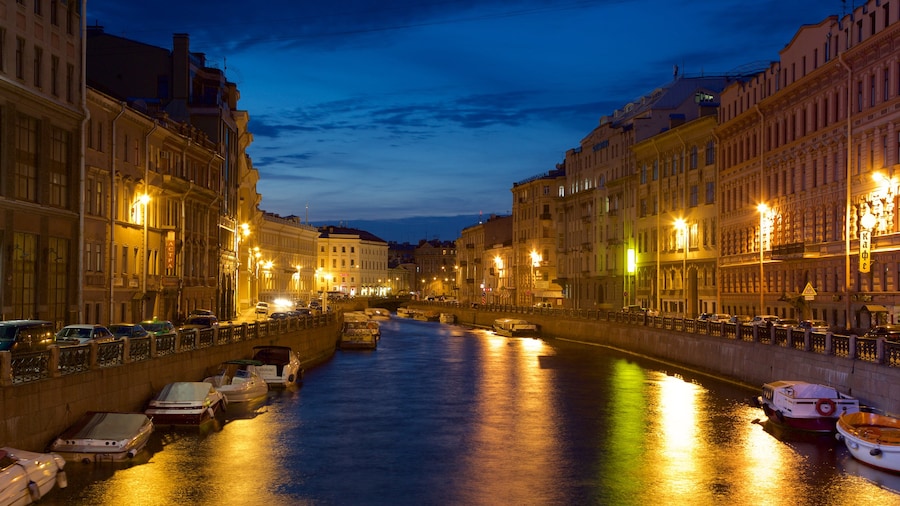St. Nicholas’ Naval Cathedral’s pretty blue walls stand on the edge of the Kryukov Canal. Named after St. Nicholas, the patron saint of sailors, it has become a revered location in Russia’s religious and naval institutions. Learn about its long association with sailors and take some time to remember those lost at sea.
Sailors were the original inhabitants of this part of town. In 1743 the people got a church, but as the population increased, Empress Elizabeth commissioned another church by architect Savva Chevakinsky for the community. The Baroque cathedral seen today was completed in 1760 and received the status of naval cathedral in 1762.
Note the cathedral’s distinctive golden cupolas and domes that crown the cathedral. The building takes the form of a Greek-style cross and its Corinthian columns are complemented by balconies with delicate railings. While not as big as some of St. Petersburg’s grander cathedrals, you cannot deny St Nicholas’ charm.
Step inside the church to see religious art and learn more about Russian naval history. You will find that the cathedral is actually comprised of two different churches. The Lower Church houses the cathedral’s major shrine, which is dedicated to St. Nicholas and holds relics. Head to the Epiphany Church upstairs to find marble tablets dedicated to members of the navy who were killed in the 1904-5 Russo-Japanese War. Victims of the submarine tragedies on the Komsomolets and the Kursk also have memorials in the cathedral. Another main attraction in the cathedral is the iconostasis carved from wood, which feature mesmerizing detail.
Walk over to the cathedral’s park to see an obelisk by architect Yakov Filote and sculptor Alexander Aubert. It is dedicated to the sailors of the Emperor Alexander III warship in the 1905 Battle of Tshushima against the Japanese. Made of granite, the obelisk is topped with a sculpture of an eagle.
Although open to visitors curious about its art and architecture, the cathedral still hosts daily religious services, which you may also wish to attend in these unique settings. The cathedral is open every day.

